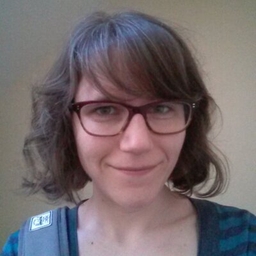
Emily Conover
Physics Reporter at Science News
Physics reporter at @sciencenews. Find me on threads (@emcconover) and bluesky (@econover.bsky.social) She/her
Articles
-
2 days ago |
sciencenews.org | Emily Conover
Quantum computers have performed the full slate of tricks needed for robust computation. And it all came down to a little magic. In a pair of papers submitted June 17 at arXiv.org, researchers generated conditions called “magic states,” crucial components of quantum computations. And those magic states were high-quality enough to allow the computers to resist errors, one of the biggest bugaboos of quantum computers.
-
1 week ago |
sciencenews.org | Emily Conover
Nuclear power is key to the United States’ plans to satisfy the nation’s growing energy needs. But there’s an unresolved problem: the waste it produces. Despite plans for an ambitious new generation of nuclear reactors that could fuel AI data centers and more, a solution to storing the dangerous, long-lived refuse remains elusive. The issue is so thorny that the Supreme Court has now weighed in.
-
2 weeks ago |
sciencenews.org | Emily Conover
No rainstorm is needed for this rainbow — it’s made out of sound. Using an oddly shaped plastic device, scientists have created an acoustic rainbow, separating white noise according to its various frequencies, or pitches. Just as a typical rainbow separates colors into different spatial locations, different pitches are directed to distinct positions around the device, the researchers report June 11 in Science Advances.
-
3 weeks ago |
sciencenews.org | Emily Conover
One of the most enduring mysteries of particle physics may be finally resolved, two new studies suggest. The oddities of muons, subatomic particles that are relatives of electrons, are starting to make sense. Muons have an internal magnetism that scientists have struggled to pin down: Measurements of a magnetic quirk of the particles have long clashed with theoretical predictions.
-
1 month ago |
sciencenews.org | Emily Conover
In sports, the best offense is often a good defense. It’s not clear if the same applies in nuclear war. In the face of nuclear threats from adversaries like Russia, China and North Korea, some politicians are clamoring for a system to reliably protect the United States from incoming missiles.
Try JournoFinder For Free
Search and contact over 1M+ journalist profiles, browse 100M+ articles, and unlock powerful PR tools.
Start Your 7-Day Free Trial →X (formerly Twitter)
- Followers
- 6K
- Tweets
- 4K
- DMs Open
- No

RT @adamconover: Amazing piece by my sister @emcconover on how quantum computers are going to transform cryptography. Read it.

RT @CassieRMartin: I loved editing this story by @emcconover and legit screamed with joy when she sent me the photo that goes with it.

RT @hadriancho: Really cool story by @ScienceNews @emcconover about a particular tile shape that can be used to completely cover an infinit…

